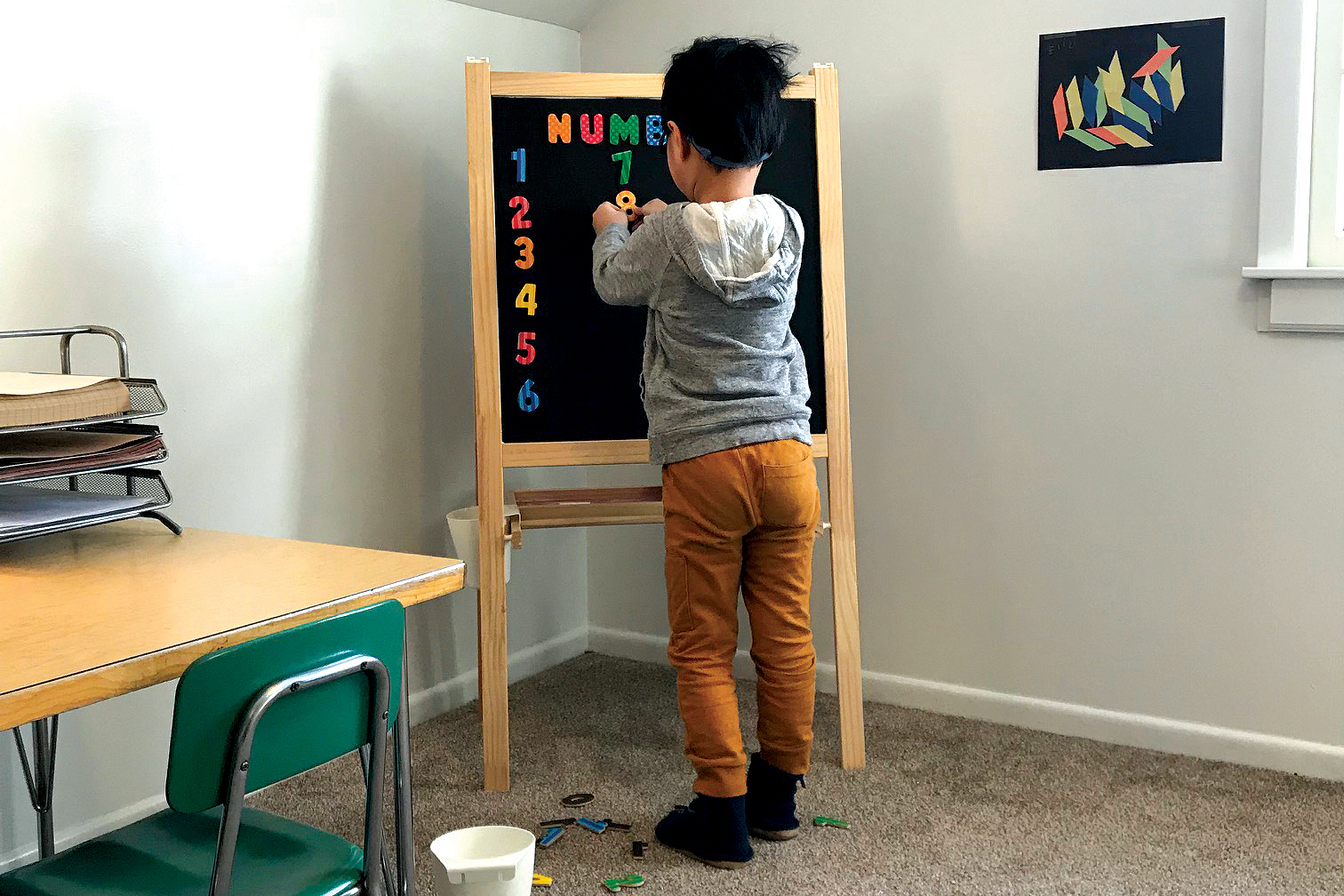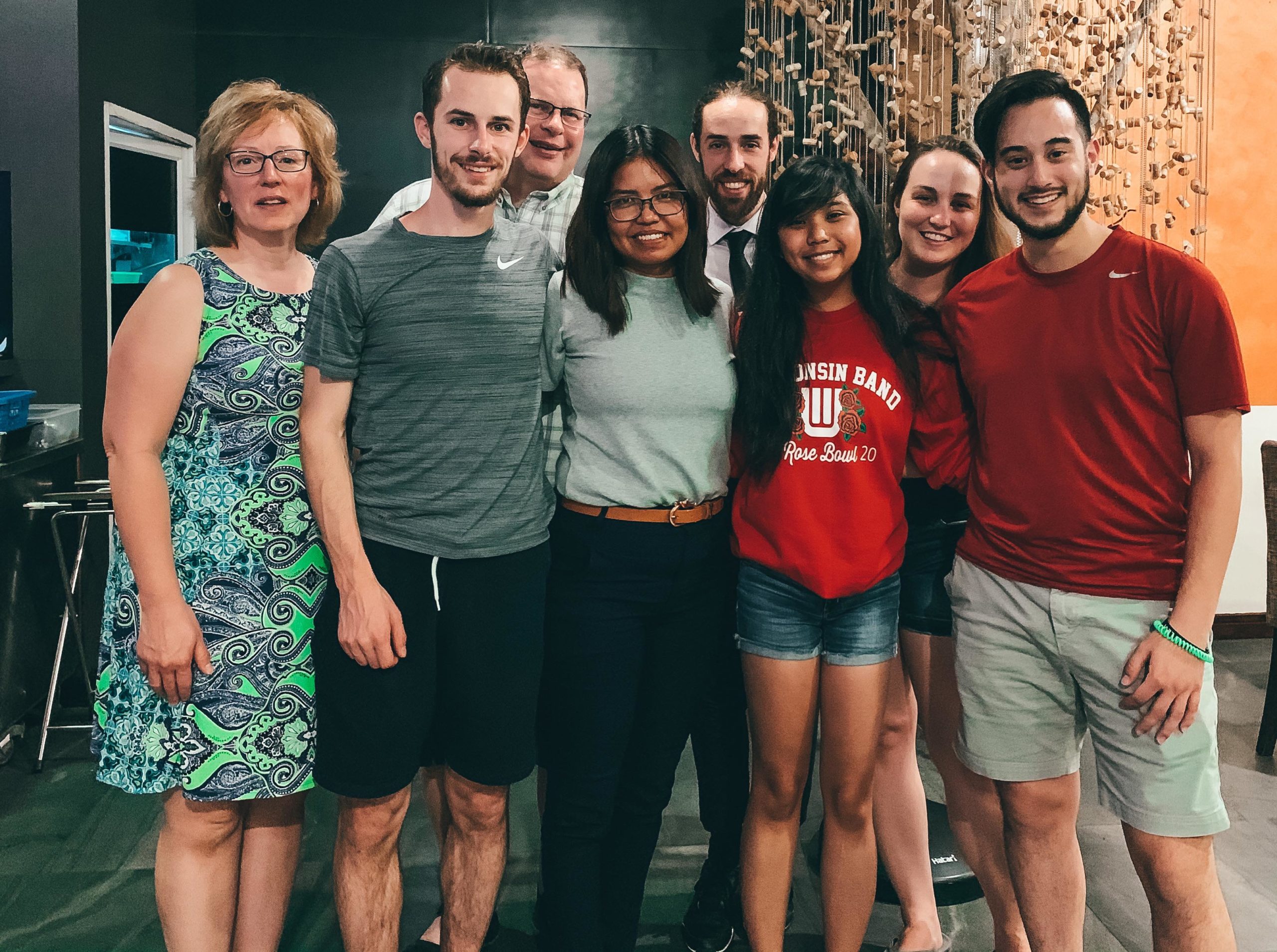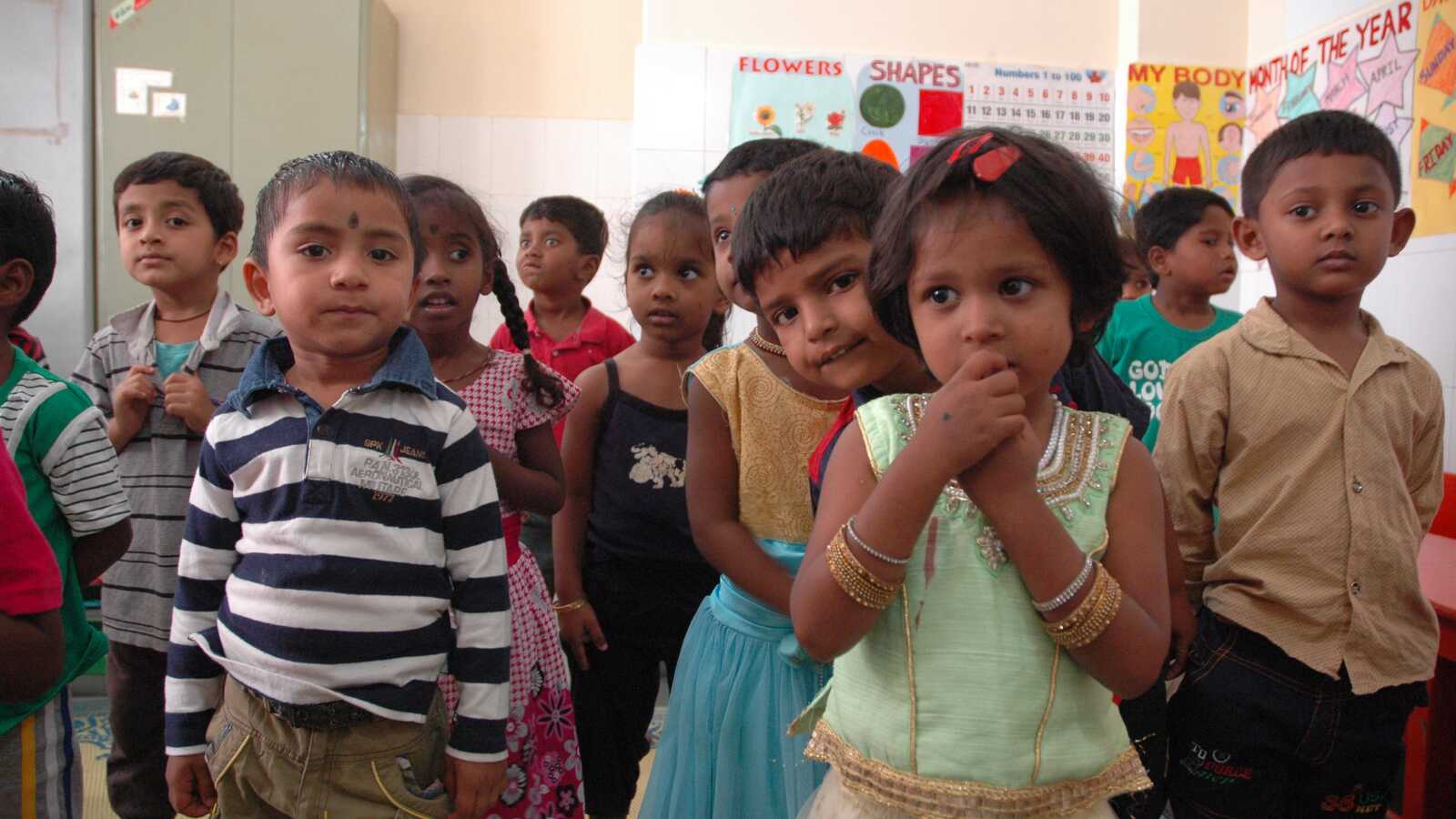An interview with Jim Dé, director of our partner Shishu Sangopan Griha (SSG) in Delhi, India. Jim shares how the COVID-19 pandemic is affecting Holt-sponsored children and their families in Delhi, and how sponsors and donors are helping to meet their most urgent needs — especially now, during the country’s deadly second wave.
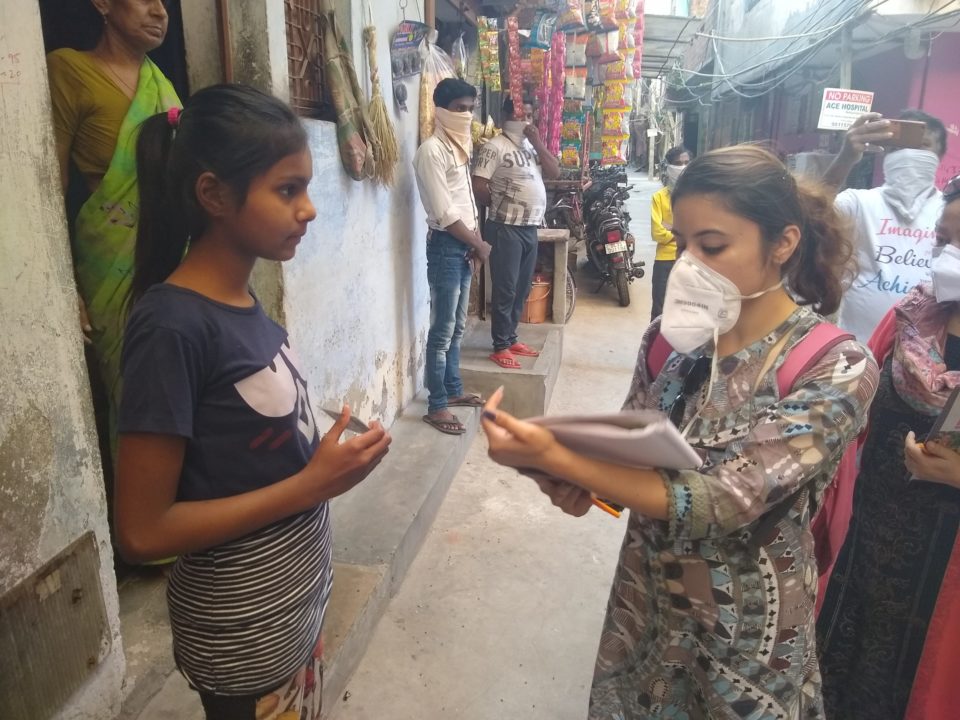
How is the pandemic currently affecting Holt-sponsored children and families in Delhi?
We saw a huge surge between the month of April and July/August 2020 and then we saw a huge tapering down of the situation and people were getting back to work. So I think the first couple of months in 2020 at least to the middle of the year was pretty difficult for lots of families. And then by Aug/Sept, we saw people getting back to work.
However, the sad thing is that in 2021, it’s back to a bigger bang than in 2020. We are seeing a huge surge in the number of cases and it seems like every second house is affected with COVID. This is an extremely precarious situation right now.
When [India’s recent lockdown] started off, the people did not realize that it was going to last over a month. Since the last two weeks, it has been painful because it’s back to no income and bare survival. Thanks to support from Holt sponsors and donors, we have been able to reach out to all the families and help them with financial aid to overcome this situation.
Over the past year, how did sponsors and donors help meet the most urgent needs of kids in your programs?
With the help of Holt child sponsors and donors … we gave a lot of support to our families. One of the main things we realized was many people were giving out rations and food grains to people. However, we chose to give out financial aid to the families rather than giving them rations and food because we realized there were many individual needs that would not be met if we just gave out a standard package of food. For example, there were many ailing parents who needed medical care …. Or there were babies who needed milk powder. There were other needs in the family and we really could not cover them extensively and it would never have been possible if we just made a package.
With the support of Holt, we really did a lot in 2020, reaching out to every family in need. And we gave a lot of financial support to pay their electricity bills or to pay their rent because they were at threat of being thrown out of their homes. … Over the year, we reached more than 2,000 people.
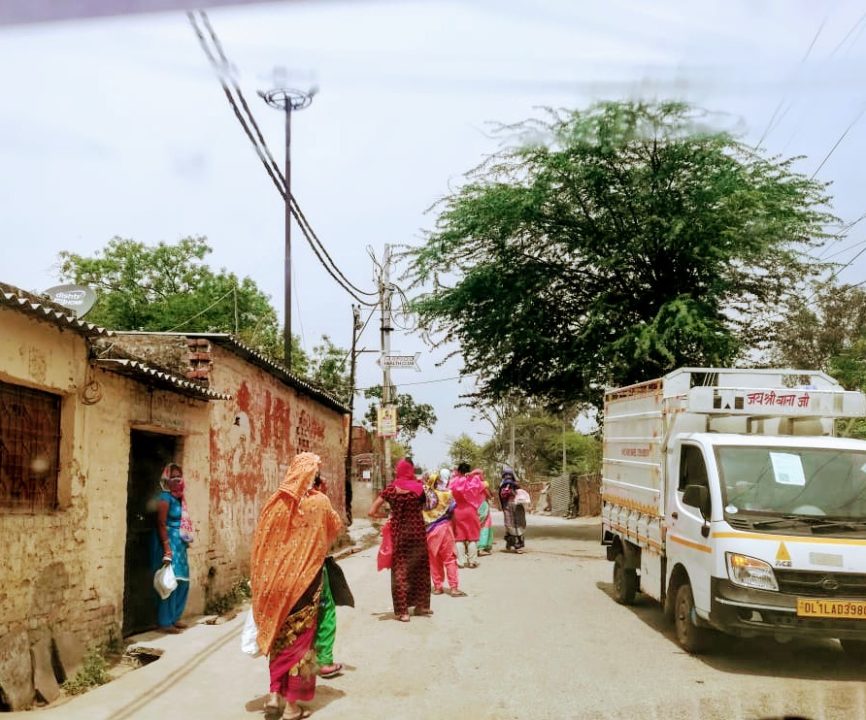
In recent weeks, India has been hit by a deadly second wave of the pandemic — overwhelming hospitals and causing another economic shutdown. How have sponsors and donors helped meet the most urgent needs of kids and families during this time?
Thanks to the support of Holt sponsors and donors, the precarious conditions of survival and health are being overcome constantly. While financial aid helps [children and families] with their basic needs — covering them for a month to six weeks — we hope the end of [India’s current] lockdown may reduce the burden. I do however worry as [last year], we saw similar situations as employers restricted workers from coming back to work. That went on for a few months. We don’t know how the government will open up and of course that remains a worry because opening the city risks the virus. On the other hand, the lockdown restricts economics. It’s a double-edged sword.
*Since this interview in late May, the government has now begun to partially reopen the economy in some parts of India, including Delhi.
How have you helped children continue their education during the pandemic?
When we talked to kids in the first few weeks of the pandemic, the kids were very happy not to go to school, as any kid is. But over a period of time, we realized that they were totally getting disconnected to the education system. So with the help of Holt sponsors and donors, we bought tablets for all the kids …. And we got them back into an online school system. … The younger kids now attend online activities and lessons every day through a teacher using Zoom. … The older kids are mostly enrolled into Udemy for various courses. Many kids have opted to study English. Some kids have chosen arts and craft, and some even want to learn cooking! It looks like lots of fun for the kids.
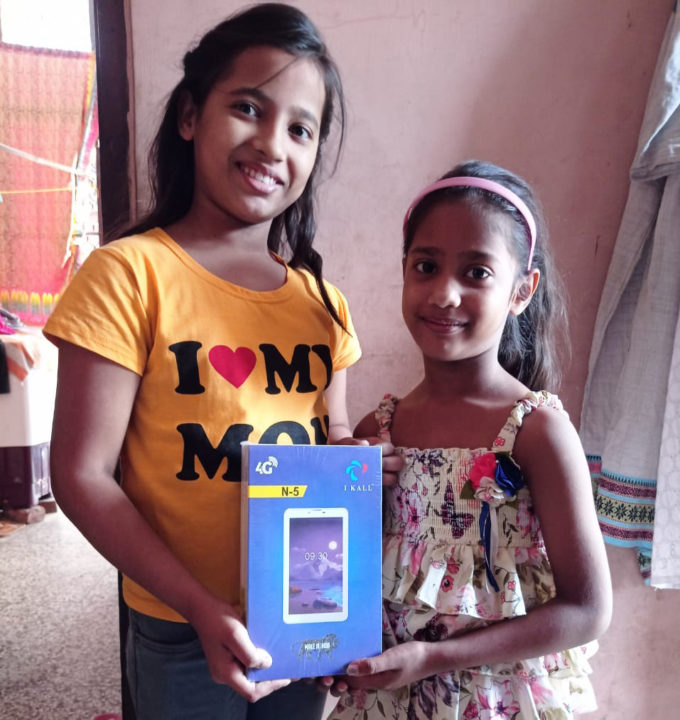
Early in the pandemic, you started a video blog, or “vlog,” to help the children stay connected. Are you continuing that now?
We moved onto a podcast. [We did] the vlog during the time when the children were really sitting at home and getting bored. So we did it for a couple of weeks until the kids went back to school in September. Then all the kids got busy because there were assignments to be done and classes online. … But while we did the vlog, it was very interesting for children to participate. Some children shared stories about their own personal lives and challenges that they face. Importantly, every kid in the program was able to hear each other’s stories so they were able to relate to them. … By 2020, we decided that one of the main things we wanted to start was counseling. So we did move into podcasting.
Is podcasting a way to counsel children and families remotely?
[We] reach out to the families and children. … For example, we’ve done stories on the importance of college education, the issues of social peer groups and what’s the value of friends and family in your life. These kinds of topics are what we try to talk about with kids and also their parents.
Once of the topics that we did recently was the impact of parenting on children and we tried to do it interactively. So we shared the link with children and they subscribe to it on Spotify. The children can listen to it and send us audio recordings of … their responses of how they felt and how they were motivated through that session.
We’ve had lots of responses from the children and even from parents coming back and saying they really liked what we had to say to them. And they were motivated. One of the children, I remember, had finished high school. He’s a very nice boy but he doesn’t have a father and his mother and sister have been pressuring him to go to work. They don’t want him to go to university and I have been trying to counsel him and convince him to go to university and get a part-time job. It was just around that time that we did the podcast on college education and after the podcast, we heard from his mother and she said yes, we definitely believe that he should go for college education.
Because of COVID, one of the biggest challenges right now is actually getting into communities and meeting with people face to face. So we think that using the podcast is a better way to interact with people.
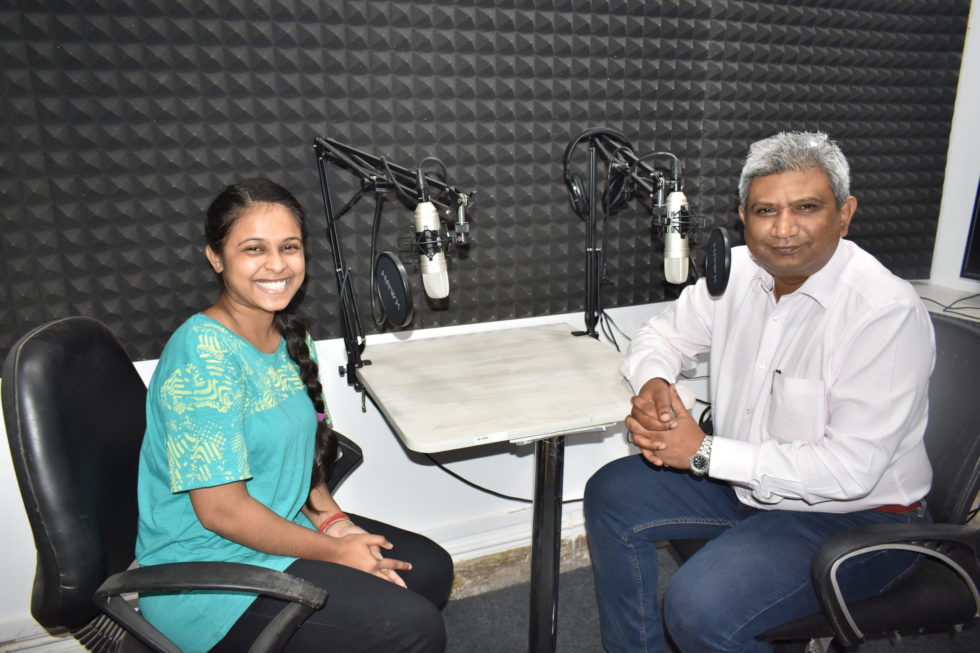
How is your team helping children and families adapt to the new normal of COVID-19?
It’s been a huge mental stress for everybody. … What we are trying to do in 2021 is develop a program for mental health. We are trying to bring in volunteers to become mentors. … I think for all of us as we’ve grown up, we’ve always tried to look up upon somebody. And children living in these communities, they don’t have aspirations … We’re trying to use role models to create aspirations and motivate them towards their goals.
What are the biggest challenges you are facing in helping children and families at this stage of the pandemic?
Right now, families are insecure again like in 2020. Will they get work again? Will they be called back by their employers? It’s a hard situation to deal with. COVID and other health concerns are part of the ground situation as well.
Families living in [slum communities] have no luxury of good quality health care — whether it is social distancing, or hygiene. They remain at the mercy of what impacts the community, and the spread can be lightning fast.
Families living in [slum communities] have no luxury of good quality health care — whether it is social distancing, or hygiene. They remain at the mercy of what impacts the community, and the spread can be lightning fast. … We know that children by in large are showing signs of a mild flu so children are barely affected by the virus. However, the chain reaction is obviously that adults then get affected. … I know many people who’ve died. I was working with a family that recently lost a father. So it’s become a reality now that we are extremely exposed to people who are dying almost every week. We are hitting a different reality. …
Education continues to be a huge challenge for the kids. Those graduating high school are caught in limbo. They have no idea what will happen as exams cannot be held right now. This has stopped all future options.
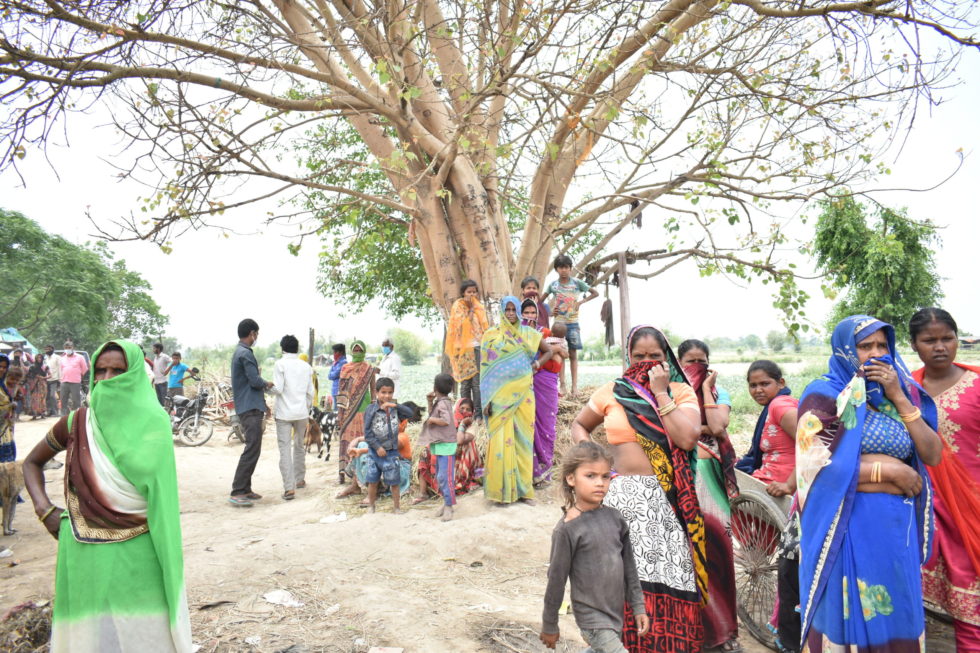
What would you like to say to sponsors and donors directly?
The compassion shown for people shows that we are a world community that cares for one another despite our own limitations and challenges. Thanks is not sufficient to express our gratitude, and all we can give back is gratitude on behalf of each child and family who are being supported through this ordeal.
